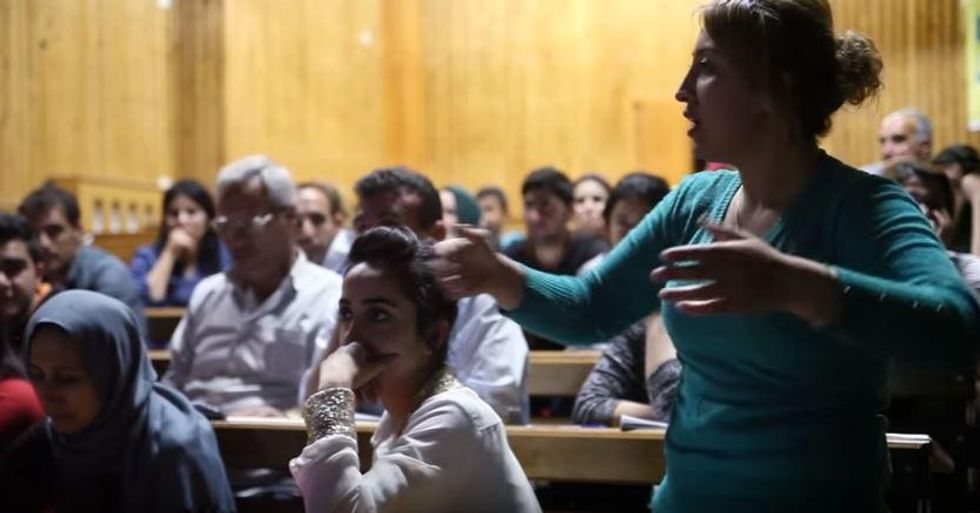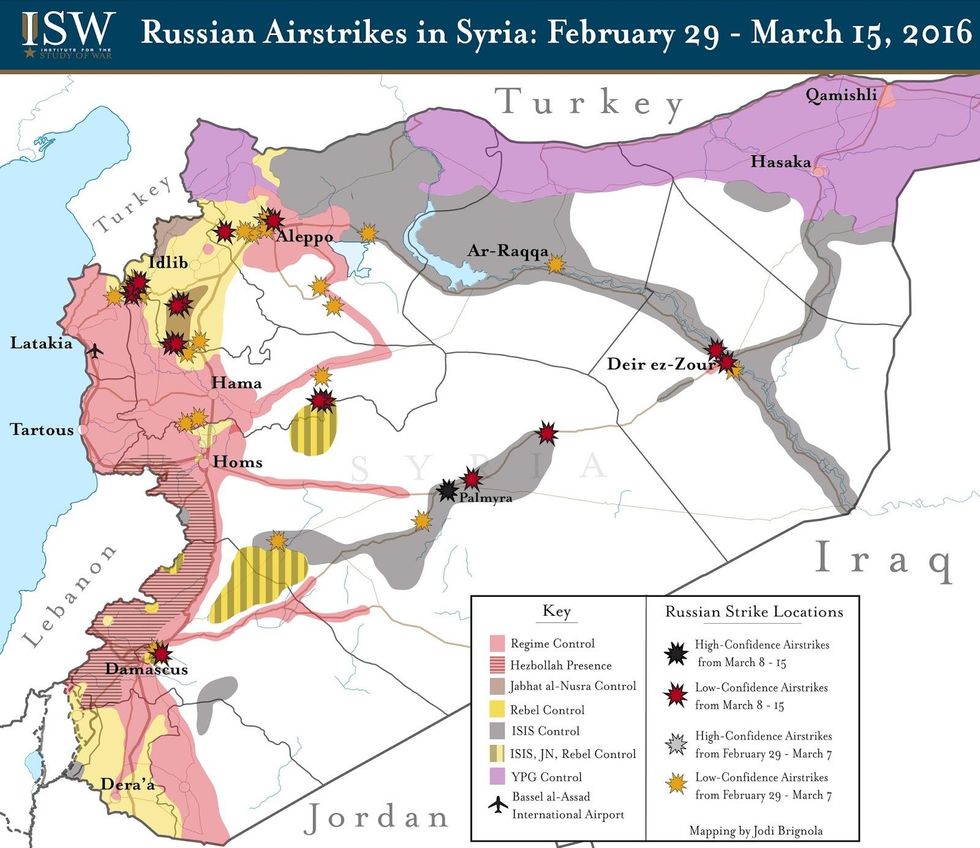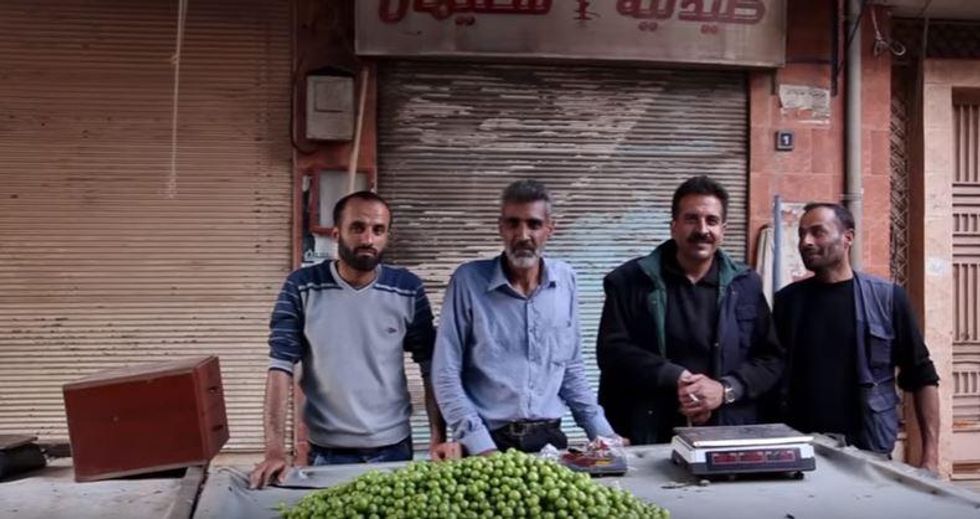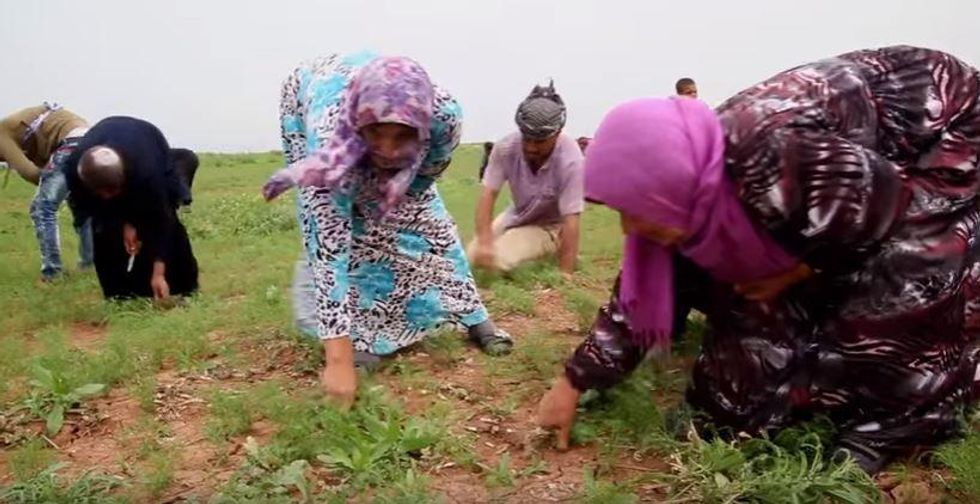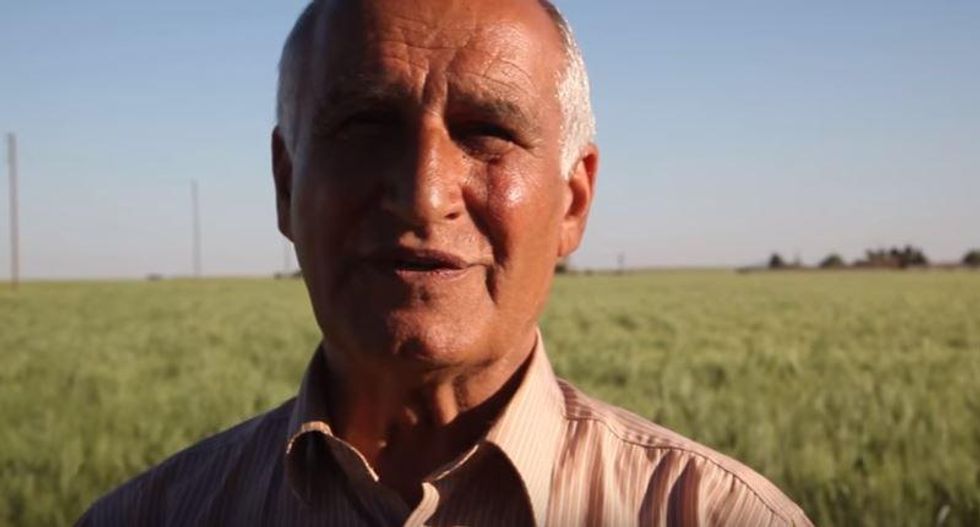News
Bethan McKernan
May 29, 2016
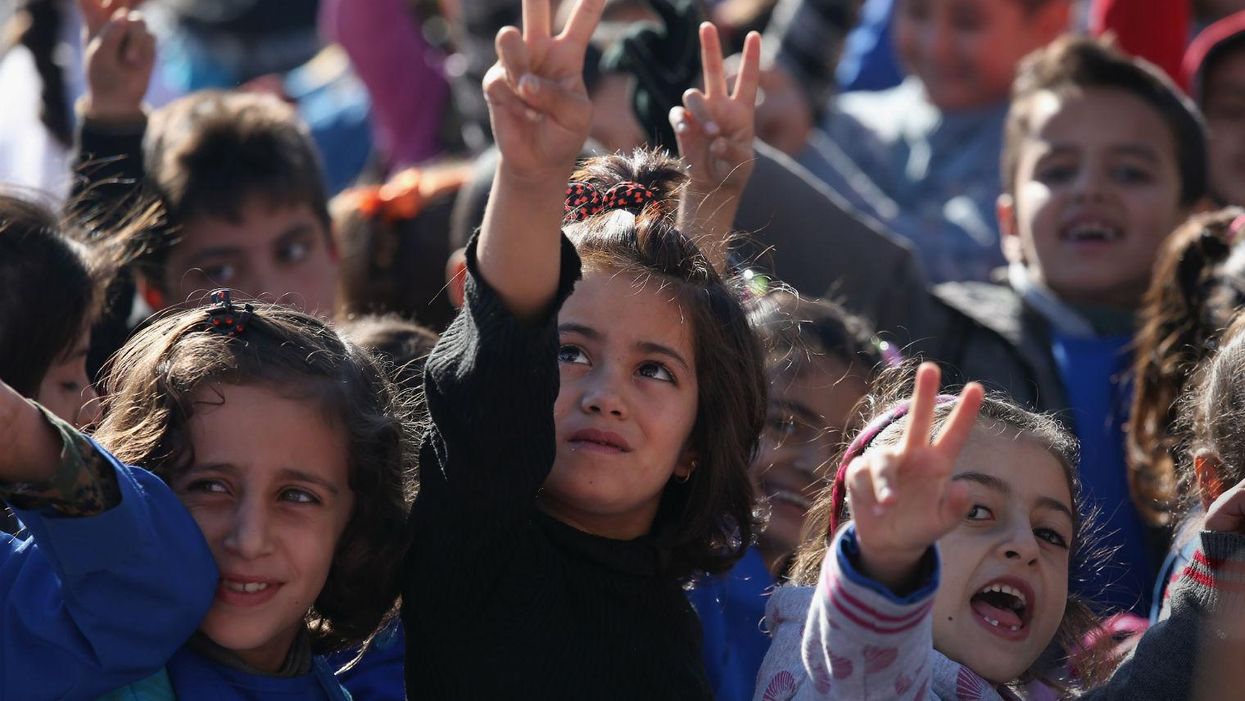
Children flash the victory sign after singing the Rojava anthem at a public elementary school on November 12, 2015 in Qamishli, Rojava, Syria
Rojava, the self-declared autonomous state surrounded by Isis territory in the north of Syria, has done its best to flourish despite the devastation the civil war has wreaked.
The socialist statelet of around 4million people has been described as the one spot of light that has come out of the conflict. Parallels are often drawn with freedom fighters such as the Ukrainian Free Territory, Zapatistas and Shinmin, since Rojava is a feminist and polyethnic society, with a constitution that insures Kurdish, Arab and Christian voices are represented, as well as women.
Rojava's Kurdish YJA Star army, backed by PYD and YPG militia, the Syrian affiliates of the PKK, the Kurdish movement fighting in Turkey, is viewed somewhat suspiciously by the US and the West, but is the only ground force that has successfully repelled both Isis and Jabhat al-Nusra, the Syrian branch of al-Qaeda, driving the former out of the besieged town of Kobani.
While Rojava is an oasis compared to the daily horrors of other parts of Syria, getting supplies in and out of the surrounding areas is dangerous.
Rojavans are resilient and resourceful - last year, with the help of Swedish socialist movement Allt åt Alla, they managed to raise enough money to send the parts needed to repair the failing electricity generators in the city of Amuda.
But the local authorities are now facing a growing worry: whether Rojava is going to be able to feed itself in the coming year.
The region was known as the 'breadbasket of Syria' before the war broke out, growing more than half of the country's wheat. But monoculture has depleted the once fertile soil, and chemical fertiliser has also decreased the harvest year on year.
Farmers are not getting enough fertiliser to grow sustainable amounts of wheat for the region's people - so far this year, only 10 per cent of the needed amount could be imported, which means only a third of a usual harvest is predicted. Food and fertiliser prices have also skyrocketed since the war began.
Between scarcity of product, renewed jihadist and Isis attacks, and an expected drought, there are worries of famine.
A solution has been hit upon: Rojava could make its own fertiliser, which would also be a step towards diversifing the region's agriculture and making it more sustainable.
But to do that, they need help - and that's where the Feed the Revolution fundraising project comes in.
Biological waste from an average town combined with animal droppings should make enough fertiliser for 60 per cent of the region's arable land.
The process is organic, sustainable and easy enough - so FTR has been set up to raise funds to establish waste-processing facilities and conduct training on how to get the right carbon-nitrogen ratio. They need, among other things, a bulldozer, air processing system,
The campaign has already raised €60,000 - more than double the amount raised for the new electricity generators last year.
They are still a long way off the target of €180,000, mainly because getting the word out online is difficult and the region is often without internet access for days. But as one member of Allt åt Alla told indy100:
No matter how much money is raised it will be used for important work.
One major donation was made in Bitcoin - and apparently came from famous hacker Phineas Phisher.
Phisher told Ars Technica he/she partly made the donation to draw more attention to the region, which is often covered by media as:
[a] gimmicky article about women fighting ISIS, headlined by a picture of a hot chick with a gun.
The people of Rojava are determined not to give up, activist Bager Sam told indy100. And wheat production is important for the rest of the country, too:
...there are millions of people all over Syria that rely on Rojava’s wheat not to grow hungry. For our project to be successful their needs must be met as well. Many people, both in Rojava and abroad have put their trust into us. We will not disappoint them.
You can read more about Rojava and planned future projects here.
More: There's a peaceful region in the middle of Isis territory and it's running out of electricity
More: Kurdish fighters are using 'Mad Max' inspired homemade tanks to take on Isis
Top 100
The Conversation (0)
